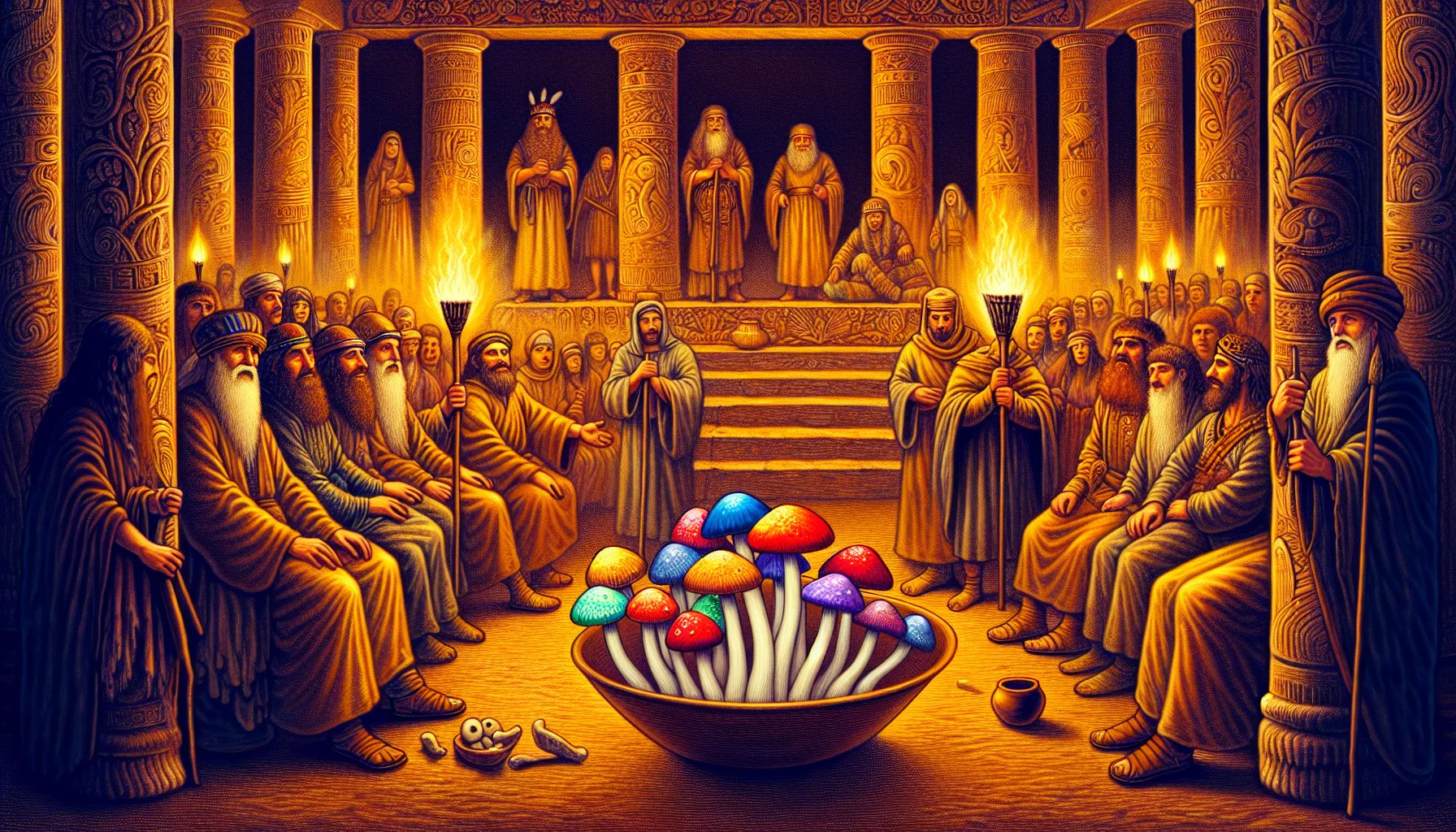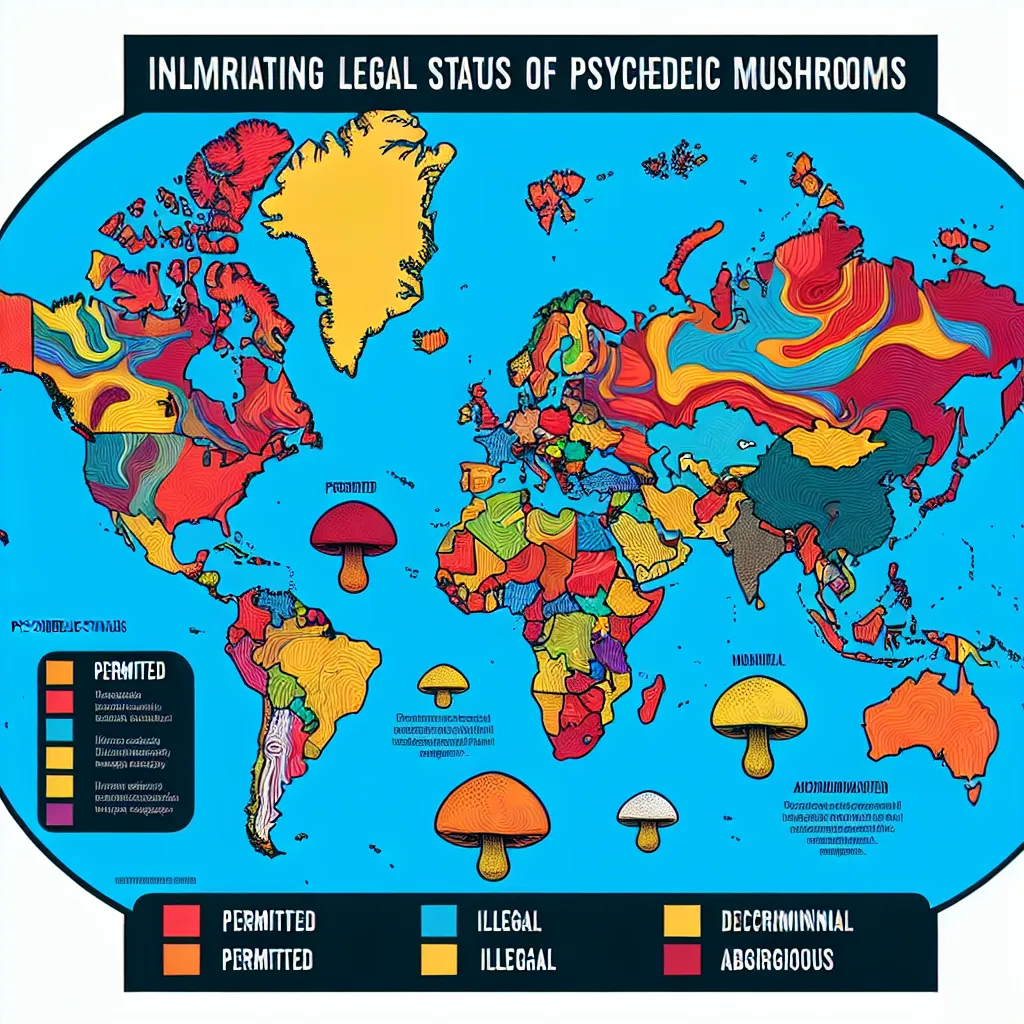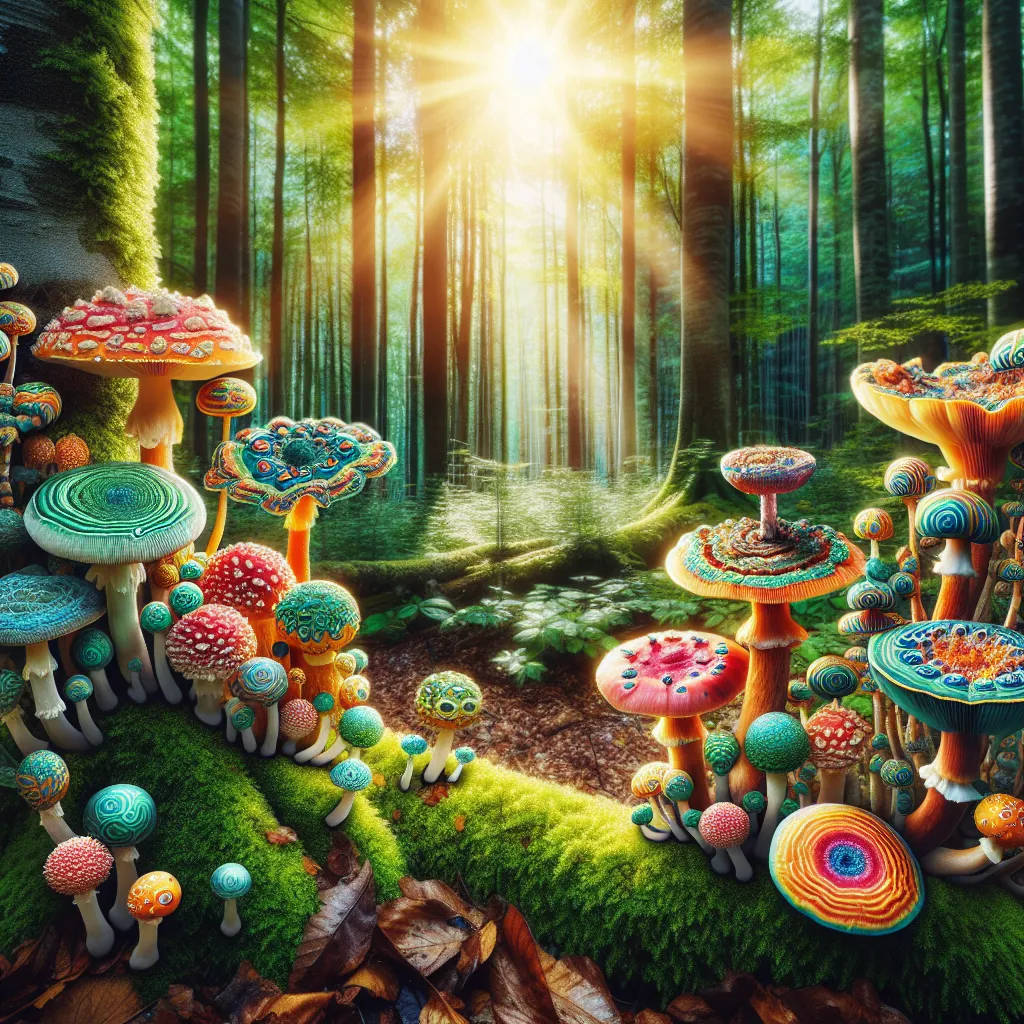Psychedelic mushrooms, also known as magic mushrooms or psilocybin mushrooms, have been part of human culture for thousands of years. They are known for their hallucinogenic properties, which are caused by the presence of psychoactive compounds such as psilocybin and psilocin. The history, effects, and legal status of these intriguing fungi are as complex as they are fascinating.
A Journey Through History
The use of psychedelic mushrooms dates back to ancient times, with evidence suggesting that they were used by indigenous peoples in religious and healing ceremonies. For instance, rock paintings in Algeria, which are thought to be over 7,000 years old, depict what some believe to be the ritualistic consumption of mushrooms. Additionally, in Central America, statues and artifacts from the Maya and Aztec civilizations suggest the sacred status of these mushrooms, often referred to as “flesh of the gods.”
In more recent history, the Western world became aware of the effects of psychedelic mushrooms in the 1950s when R. Gordon Wasson, a vice president at J.P. Morgan, and his wife Valentina, a pediatrician, participated in a mushroom ceremony with the Mazatec people of Mexico. Their experience was chronicled in Life magazine, introducing a wide audience to the potential of these substances.

Understanding the Effects
The effects of psychedelic mushrooms are primarily attributed to psilocybin, which the body converts into psilocin. These substances bind to serotonin receptors in the brain, leading to changes in perception, mood, and thought.
Users of psychedelic mushrooms often report a wide range of experiences, from visual and auditory hallucinations to profound changes in consciousness. Some describe mystical or spiritual experiences, a sense of unity with the universe, or insights into their lives and consciousness.
However, the effects can vary greatly depending on the dose, individual psychology, and the environment in which they are consumed. They can also include less desirable effects such as anxiety, confusion, and nausea. It’s important to note that research into the therapeutic potential of psilocybin is ongoing, with studies exploring its use in treating conditions like depression, PTSD, and addiction.
For those interested in the scientific exploration of psilocybin, the Johns Hopkins Center for Psychedelic and Consciousness Research is a leading institution conducting groundbreaking studies. More can be learned about their work through their official website.
The Legal Landscape
The legal status of psychedelic mushrooms varies around the world. In the United States, they are classified as a Schedule I substance under the Controlled Substances Act, meaning they are considered to have a high potential for abuse and no accepted medical use. However, there have been recent shifts in this perspective.
Several cities in the U.S., including Denver, Colorado, and Oakland, California, have decriminalized the possession and use of psilocybin mushrooms. Moreover, Oregon became the first state to legalize the regulated medical use of psilocybin in 2020. Movements for decriminalization and medical research are gaining traction in other parts of the country as well.
Internationally, the legal status is equally complex. For instance, in the Netherlands, “truffles,” which contain the same active ingredients as psychedelic mushrooms, are legal and sold in specialized shops. Meanwhile, in Brazil, the possession and sale of psilocybin mushrooms are not illegal, but the active substances cannot be commercialized.
Those interested in the evolving legalities of psilocybin mushrooms can explore the resources provided by The Beckley Foundation, which advocates for evidence-based drug policies and has extensive research on the legal status of psychoactive substances. Their website can be accessed at The Beckley Foundation’s site.

Contemporary Context and Considerations
Today, the conversation around psychedelic mushrooms is increasingly focused on their potential therapeutic benefits. With mental health being a significant challenge globally, researchers are looking into alternative treatments, including psychedelics.
In clinical settings, psilocybin has been administered to patients with promising results. Studies have shown potential benefits in treating depression, end-of-life anxiety, and addiction, often with lasting effects after just a few treatments. This has led to a renaissance in psychedelic research, with institutions like The Heffter Research Institute at the forefront, facilitating studies on psilocybin’s medical uses. To gain insights into their research, visit Heffter Research Institute’s website.
Conclusion
Psychedelic mushrooms have played a significant role in human history, from ancient spiritual practices to modern psychological research. The complexity of their effects on the human mind continues to intrigue scientists and citizens alike. As legal barriers begin to shift, allowing for more research, our understanding of these substances is likely to deepen, potentially unlocking new therapeutic possibilities.
The future of psychedelic mushrooms is uncertain, but the increasing interest in their effects, both recreational and medicinal, suggests that they will continue to be a topic of discussion and study. As we uncover more about their potential, it’s crucial for society to approach their use with an informed, respectful, and safety-focused mindset, ensuring that the ancient legacy of these remarkable fungi can be integrated into modern practices responsibly and beneficially.

